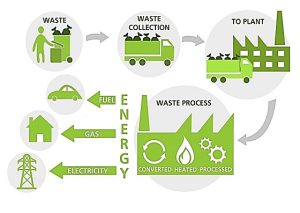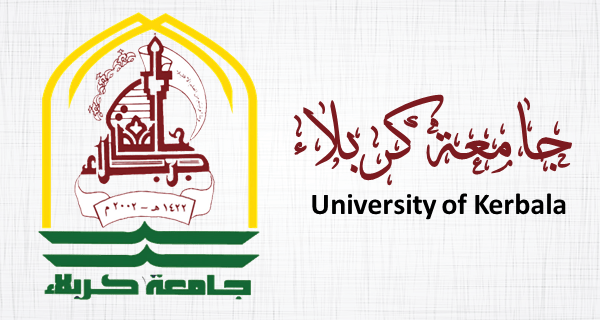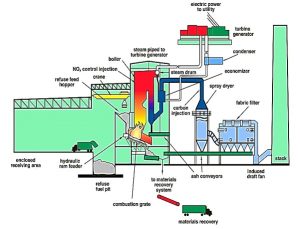Prof. Dr. Ali Abdul Razzaq Altahir 1
Sura Lateef Salman 2
⦁ The University of Kerbala, Collage of Engineering, Electrical and Electronic Engineering Department, Karbala, Iraq
2The University of Kerbala, College of Pharmacy, Karbala, Iraq
An ambitious practical study of recycling and solid waste investment would involve a comprehensive approach to address sustainability challenges related to waste management. To lessen the effects of these wastes and their accumulation on the environment, waste recycling involves using garbage, whether it be home, industrial, or agricultural. Over the past few decades, managing solid waste has become one of the most challenging responsibilities for governments in the majority of nations. Solid waste management now encompasses minimizing the harmful effects of garbage as well as the process of collecting solid waste and disposing of it in landfills. The concept of recycling was first introduced during World Wars I and II when countries experienced a serious shortage of essential commodities like rubber. As a result, they decided to salvage these components from waste for use in a variety of industrial industries. One of the most crucial strategies for managing the disposal of pollutants in the modern day is the recycling of solid waste. environmental; and the use of recycled materials rather than fossil fuels in significant industries involved with the production of electric energy. For a long time, the primary method of recycling was direct recycling by waste material producers. However, with the start of the 1990s, the emphasis shifted to indirect recycling, or manufacturing waste materials to create other products based on the same raw material, such as recycling glass, paper, plastic, aluminium, and other recyclable materials. Currently remade. Industrialists have discovered that if recycling programs are implemented seriously, they can help save operational costs and raw material costs while also enhancing their reputation as those who are accused of environmental damage. Recycling waste is the pinnacle of civilisation, but many nations that have adopted recycling broadly have begun to doubt its level of efficacy as they have come to realize that recycling has a high cost relative to its benefits and returns. The recycled product typically has a poorer quality than the original product when it is utilized for the first time, and it is not employed for the same uses. However, because it is more expensive to create than the fundamental product from its raw components, recycling is not only energy inefficient but also economically illogical. Therefore, the question of what is the best approach to dispose of waste emerges if recycling is unsuccessful. The only solution is in the hands of the producers, who must look for another way to dispose of the garbage while also avoiding wasting the non-renewable raw resources in it. Some concepts have already started to surface, such as using the garbage’s smashed glass as a substitute for sand for paving streets or attempting to use the waste to produce renewable energy. According to statistics from the Municipality of Baghdad in 2019, Iraq produced between 9 and 25 thousand tons of solid waste per day, which is more than it did 19 years earlier. This presents a problem because Iraq lacks the necessary infrastructure to handle this volume of waste and dispose of it properly, ensuring that there are no adverse effects on the environment or the health of the population. As a result, the majority of the waste is burned. In the end, these actions cost Iraq dearly in terms of its international commitments to cut greenhouse gas emissions, in addition to the direct degradation of the soil and water that the garbage directly caused. The procedure used to collect, transport, and treat solid waste is known as solid waste management. To develop an integrated strategy for managing and investing in solid waste recycling to produce clean electric energy, maximize financial resources, and preserve national wealth, the study aims to evaluate the generated solid waste management system and identify its strengths and weaknesses. By showcasing cutting-edge methods for turning waste into electrical energy, the Waste to Renewable Energy initiative will improve climate security for disadvantaged and vulnerable areas. In addition to safeguarding the environment and supplying a sustainable energy source through the treatment of local garbage, the model adopted also creates prospects for sustainable employment. This will improve living conditions by removing risks to public health posed by unchecked street waste and by increasing energy supplies for vital public services in underserved communities vulnerable to climate change-related displacement, as shown in Figure (1). This project will handle 1000 tons of municipal solid waste per day and 365,000 tons per year, install 2*500 tons /day incinerations, 300 MW steam turbine and corresponding supporting systems, flue gas purification systems, sewage treatment systems etc. The income from waste disposal fees (US$40 /ton) and incineration waste heat power generation and online electricity sales ( US$100 / MWh)
Figure (1): Producing electric power from municipal solid waste [6]
Reducing the waste generated is one of the most economical ways. The approach in which the audience plays a major role in its success. Source separation and recycling are not used in the Karbala waste management system currently in operation. As a fresh contribution to knowledge, this study intends to evaluate the perspectives of educated hotels and their readiness to take part in the waste source separation and recycling system during important festivals. To do this, a poll of 150 participants was performed for 20 days during a single significant religious occasion. Data was gathered through surveys and interviews. The questions are intended to gather information regarding environmental awareness, participation willingness, preferred screening options, and policies that can encourage innkeepers and pilgrims to take part in the program. The study’s findings show that most respondents have little understanding of the environment. But 68% said they would be willing to take part in the water and sanitation program. To promote trash segregation, make the provision of recycling containers a key priority. To help the Karbala waste management authority establish a trash separation plan during religious occasions, a series of steps has been suggested [1].
Nearly 20 million pilgrims visit the Iraqi city of Karbala each year for a variety of religious occasions. As a result, enormous amounts of solid waste are created, which directly affect the environment and human health. For city officials, managing this waste presents a major and complicated challenge. Therefore, gathering accurate and trustworthy information on this subject is important for planning waste management strategies and applying resource recovery.
Sampling and data analysis were carried out using the ASTM D5231-92 (2003) standard methodology. Six separate categories—organics, plastics, paper, metals, glass, and other wastes—were physically sorted from 60 samples of unprocessed solid waste. According to the findings, organic waste makes up the majority of garbage (57%) while paper, plastic, and other comprise 15%, 14.6%, and 6.5%, respectively. These findings suggest that there is a significant possibility for energy production or composting given the high amount of food waste. Additionally, it is possible to separate and collect glass, metal, paper, and plastic for recycling.
These findings can serve as a starting point for creating an efficient waste management system in Karbala City and other places hosting comparable significant Hajj events [2].
Every year, millions of pilgrims from all around the world attend a variety of religious ceremonies. Accurate and trustworthy information regarding municipal solid waste generation during such occurrences is important for management planning and applications including resource recovery. Determining the amount of garbage produced by service processions and temporary tents that the Iraqis erected to house and serve pilgrims during these ceremonies is the goal of the current inquiry.
According to the investigation’s findings, the average daily production of municipal solid waste from the treatments was 284 kg, ranging from 22 to 944 kg. This discrepancy can be ascribed to equal costs and the quantity of meals delivered by each procession. These results can therefore be utilized as a springboard for developing a suitable management system to be applied in Karbala during religious occasions. Keywords: municipal solid trash creation; huge religious gatherings; data collection; PR services [3].
Large volumes of municipal solid trash are produced each year during the main religious festivals held in the Iraqi city of Karbala, which can harm the environment and people’s health. One of the major sources of solid trash produced during these festivals is the hospitality industry, particularly hotels. Accurate data on the production of municipal solid trash is needed to set up an effective waste management system for such festivals. This study looked into how much municipal solid garbage was produced by Karbala hotels during significant events. To find out how much solid garbage is produced and how the properties’ attributes affect it, a field assessment was carried out on 150 hotels throughout the Arbaeen festival, one of the biggest celebrations in the world with almost 18 million attendees. Hotel managers responded to inquiries regarding the size (costs, space), number of staff, and other aspects of the establishment.
To determine the volume of MSW produced by these hotels, an on-site audit was done with each participating hotel. The findings revealed that hotels produce a wide range of municipal solid trash. In all, it was discovered that each hotel visitor produces roughly 0.89 kg of MSW each day. The amount fluctuates, though, depending on how well-rated the hotels are. One- and four-star hotels, respectively, produced an average of (0.83) and (1.22) kg of municipal solid trash per guest per day [4]. 300 million pilgrims travel to countless cities and holy locations around the world for religious festivals. Even though religious activities have a reputation for producing a significant amount of rubbish, the search for municipal solid waste is restricted. By analyzing and evaluating municipal solids, this study seeks to close this knowledge gap and add to the body of knowledge regarding the management of municipal solid waste at religious events. One of the biggest religious gatherings in Iraq, the Arbaeen festival in Karbala, used the waste management system.
The performance of the event system was assessed utilizing the framework of standard indicators after the data underwent thematic analysis. Results showed. The system fixes governance and operational flaws. Despite efforts to improve the collection and transportation of municipal solid trash, collection coverage is only about 70%. In Karbala, there are no authorized disposal sites. There is currently no official recycling program, and it is believed that 5% of municipal solid trash is recycled informally. Karbala’s government is not functioning well. The majority of stakeholders are not involved in the decision-making processes, which results in a minimum level of inclusivity for service providers and customers of municipal solid waste management services during the event. Free municipal solid waste management services have a significant impact on the system’s ability to remain financially stable [5].
By running its 8 active engines, the garbage gas-fired Balkesir Plant, which is a component of Biotrend A’s assets, can generate installed electric power of roughly 11,312 megawatts. The facility can also get rid of 1,600 tons of trash every day [8]. Thermal and electrical energy can be produced from garbage in one of two methods. The first technique is a more conventional one that only involves burning garbage directly to produce thermal energy for heating and combined electric energy. However, this technique poses a risk because it could result in the release of hazardous chemicals that worsen global warming. Regarding the second method, it can be summed up in the stations that Turkey is constructing in the majority of its states. The work of these stations can be summed up in the collection of methane gas that results from the decomposition of organic waste, such as fresh produce, food, and vegetables, in the warehouse in an airless environment, and the collection of it in large tanks in preparation for conversion to engines that burn it to produce thermal energy to generate electricity. One of the most hazardous gases that contribute to global warming is methane, thus eliminating it in this method is one of the most effective ways to do so right now as shown in Figure (2) [7].
Figure (2): Waste-to-Energy Technology [7]
To strengthen the national economy, the proposed project aims to treat 1000 tons/day of solid waste to 30 MWh, as it works to achieve an economic return from the waste recycling process, which will be reflected in the transfer of modern technologies in various manufacturing fields within the companies and their affiliated units, and cooperation with national and international companies specialized in the field Waste management in the implementation of this type of projects, to deepen local manufacturing, increase added value, reduce imports, and provide foreign currency in a way that enhances the national economy. The proposed study is one of the special studies for giant projects that operate on two parallel production lines:
First production line: making the most of solid waste and converting it into environmentally friendly energy products.
Second production line: the production of clean electric energy from the extract of the first production line.
Below we summarize a number of the following recommendations to improve the current solid waste management processes:
⦁ Develop a strategy for waste management in the medium and long term, which must set realistic goals for waste prevention, resource recovery, and proper disposal.
⦁ Conducting a complete review of all legislative aspects of managing the solid waste file to strengthen and harmonize them with the objectives of the modern model of waste management in terms of focusing on recycling resources instead of landfilling them
⦁ Updating the existing waste management facilities to comply with the environmental determinants in Iraq and establishing new waste management facilities to accommodate the amount of waste generated.
⦁ Developing modern waste treatment facilities to reduce the amount of waste and recover resources, such as waste incineration plants to generate electric power and organic resource septic plants to generate energy and produce agricultural fertilizers.
⦁ Developing an accurate waste data recording system and creating a research unit responsible for developing waste research and managing the waste data bank.
References
[1] Muhammad Abdulredhaa, Rafid AL khaddarb, David Jordanb, Ali Alattabi,” Facing up to waste: how can hotel managers in Kerbala, Iraq, help the city deal with its waste problem,” Procedia Engineering, vol. 196, p.p 771 – 778, 2017.
[2] Muhammad Abdulredhaa, Rafid AL khaddarb, David Jordanb, Khalid Hashimb,” The development of a waste management system in Kerbala during major pilgrimage events: determination of solid waste composition,” Procedia Engineering, vol.196, pp.779 – 784, 2017.
[3] M Abdulredha1, A Abdulridha, A Shubbar, R Alkhaddar, P Kot and D Jordan,” Estimating municipal solid waste generation from service processions during the Ashura religious event,” IOP Conf. Series: Materials Science and Engineering, 671, p.p 012075, 2020.
[4] Abdulredha, M., et al., 2017. Hoteliers’ attitude towards solid waste source separation through mega festivals: a pilot study in Karbala. In: 3rd Dubai Annual Doctoral Research Conference 2017, 13 May Dubai. The British University in Dubai, pp. 273–282.
[5] Muhammad Abdulredha, et al.” Investigating municipal solid waste management system performance during the Arba’een event in the city of Kerbala, Iraq, Environment, Development and Sustainability, vol. 22, p. p1431–1454, 2020.
[6] Al-Anbari, R., Alnakeeb, A., & Abdulredha, M. (2014). Landfill site selection for Kerbala municipal solid wastes by using geographical information system techniques. Paper presented at the 1st International Scientific Conference on Environment and Sustainable Development, University of Technology, Baghdad, Iraq, 29–30 December 2013
[7] Al-Masoud, R. M., & Al-haidary, M. S. (2015). Spatial analysis of residential waste solid in the city of Karbala. Karbala University Journal, 13(2), 132–154.
[8] Alsebaei, A. F. (2014). Solid waste management and recycling during the Hajj pilgrimage in Mina. Leeds: The University of Leeds.
 University of Kerbala
University of Kerbala



























































